Defence Secretary Ben Wallace has said that the cost of encouraging companies to invest in UK shipyards might result in some parts of the three support ships being built in another country.
The information came to light during a recent evidence-gathering session held by the Defence Committee.
John Spellar MP asked:
“You talked about integrating. I could say, “I integrate my piece of IKEA furniture by just putting a few bolts in”. When you say “integrated”, how many of the blocks that are going to be integrated are going to be built in British yards, or will they all be built in foreign yards and then welded together in a yard in this country?”
Secretary of State for Defence Ben Wallace replied:
“As you know, I worked aerospace, John, so you will understand that there are lots of ways in which a contract is valuable. In terms of Govan and Scotstoun, probably the most valuable part of the contract for the Type 26 is Scotstoun, where we put on radars, sensors, steering gears and engines. Britain sometimes leads the world in things other than just the metal box. It leads the world in the integration, the weapon systems and the electronic warfare.”
Spellar pushed for more details:
“We are talking about a support ship that will have some of that but not primarily. Will those blocks for those ships be built in British yards, or will they be built in foreign yards and just welded together?”
Wallace responded:
“I will ask Admiral Cox to tell you, to the extent that we can in the middle of a competition which we are in, but when the competition is decided, we can answer many of those questions for you. Fundamentally, the majority of that ship project, whether it is build, integration or supply chain, will be UK. How much—100%, 60% or 70%? We will see what the bidders are putting in, but it is important, as I have said earlier, that we are trying to access both export markets and productivity investment into yards.
For example, if a British bid said, “I would like your contract, but I am not going to invest in the capital of the yard”, and a foreign bid said, “We will invest in some of your British yards, but some of the build will be in our country”, which would you accept—the one that does not want to put any investment in machinery and capital, or the one that does want to improve the yard at the same time? Which would you accept, John? That is often the choices that I have. Which would you accept?”
The Ministry of Defence recently confirmed that the Fleet Solid Support ships will, for the most part, be British built. Jeremy Quin, Minister for Defence Procurement, said:
“For the purposes of procurement the Fleet Solid Support ships are considered to be warships. This has significance in the procurement route we choose to adopt, and we are not pursuing an international competition. This does not preclude international bidders from participating if they can meet the UK’s national security requirements, for example through a close partnership with UK companies.”
The Ministry of Defence also said previously:
“A competition to build three Fleet Solid Support warships – which will launch in Spring 2021 – will help revitalise British shipbuilding by requiring a significant proportion of the build and assembly work to be carried out in the UK. International companies will be invited to work in collaboration with UK firms to feed in their skills and expertise, but the successful manufacturing team must be led by a British company. This will have a huge impact on the local economies across the UK where shipbuilding is a prominent feature.”
So, what does this mean? Well, it seems foreign companies are expected to be involved in the project, perhaps with some small level of building work done overseas, and their modules will be shipped to the UK to be integrated with the ships.
The Ministry of Defence last year issued a ‘Request for Information’ to industry looking for British shipyards to participate in the Fleet Solid Support Ship programme. The RFI stated:
“The Authority is interested in expressions of interest from UK shipyards who are capable of making a meaningful contribution to the manufacture of three (3) Fleet Solid Support (FSS) ships for the Royal Fleet Auxiliary (RFA) and Royal Navy (RN) by 2032. In line with the Contract Notice for the FSS Procurement published on 21st May 2021, one of the Authority’s Procurement Objectives is that integration of all FSS ships and installation of sensitive systems subject to national security restrictions will be carried out in the UK.”
What are the Fleet Solid Support Ships?
Last year, Defence Secretary Ben Wallace relaunched a competition to build three new Fleet Solid Support Ships to provide vital support to Royal Navy operations across the world. The vessels will provide munitions, food, stores and provisions to support the UK Carrier Strike Group at sea.
DE&S’ Director General Ships, Vice Admiral Chris Gardner, said previously:
“The launch of the Fleet Solid Support competition presents a really exciting opportunity for the shipbuilding industry to support the design and build of a new class of ship that will primarily resupply our Queen Elizabeth Class aircraft carriers. It is also another step in implementing the National Shipbuilding Strategy and increasing our domestic maritime construction capacity and capability alongside the Type 26 and Type 31 programmes already underway.
The FSS ships will join the QEC Task Group, carrying out replenishment at sea to supply stores and ammunition to sustain operations, which is essential to meeting the UK’s defence commitments. To do this the ships will be able to transfer loads of more than two tonnes at a time while at high speed.”
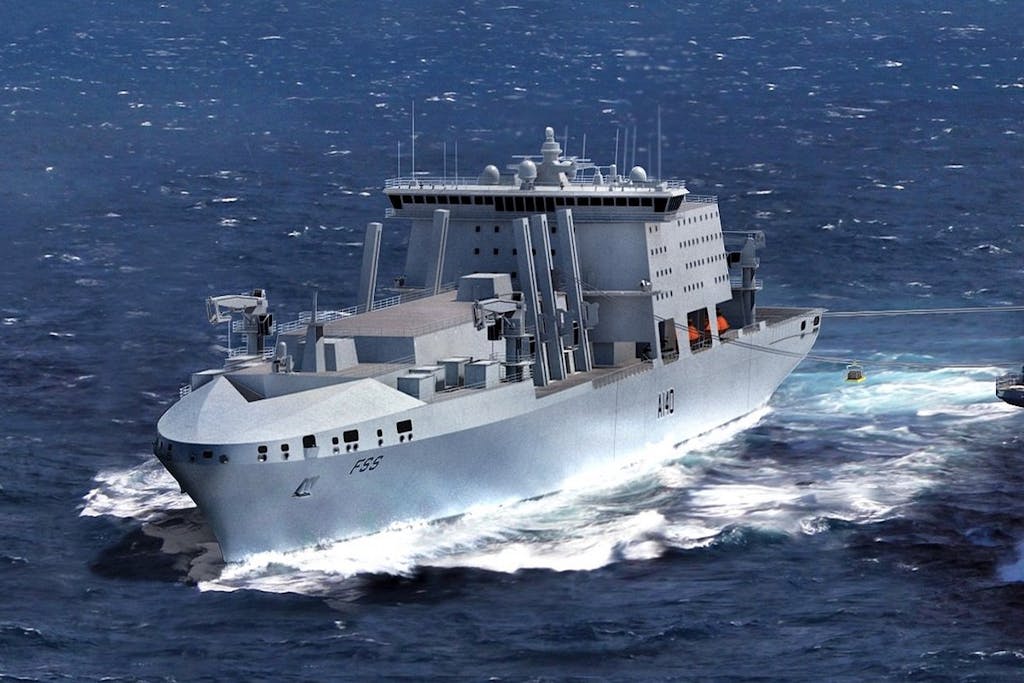
What’s the status of the programme?
The Fleet Solid Support Ship project has been given an “amber/red” rating by the Infrastructure Project Authority, warning that the cancellation and resumption of the competition to build the vessels placed the £1.6bn project at significant risk.
The project was suspended in October 2019 following suggestions that efforts were being made to relaunch the project with a requirement that the ships be built in the UK. The competition was later relaunched, you can read more about this here.
Contracts have also been awarded to four consortia, which the Ministry of Defence insist “include significant UK involvement”, to develop their bids to build three new Fleet Solid Support ships for the Royal Fleet Auxiliary.
The Ministry of Defence said in a news release:
“The award of the Competitive Procurement Phase (CPP) design contracts, each initially worth around £5 million, means the Fleet Solid Support competition has successfully moved to the next stage. The contracts, negotiated with industry by Defence Equipment and Support, the procurement organisation for the Ministry of Defence, deliver on the UK Government’s promise to progress the design and build of the FSS ships to support the Royal Navy’s Carrier Task Groups. The final manufacture contract will be awarded to a UK company acting either solely or as part of a consortium.”
The four consortia awarded contracts are (in alphabetical order):
- Larsen & Toubro, which includes UK company Leidos Innovations.
- Serco /Damen, which includes UK company Serco.
- Team Resolute, which includes UK companies Harland & Wolff and BMT.
- Team UK, which includes UK companies Babcock and BAE Systems.
The Ministry of Defence also said in the aforementioned news release:
“The FSS competition remains on track to deliver the ships the Royal Fleet Auxiliary need to support the Royal Navy, whilst maximising the social value contribution shipbuilding can make in the UK, including encouraging investment in domestic shipyards, whilst balancing the need to deliver value for money. The commitment to this vital capability was outlined in the Defence Command Paper published earlier this year and is supported by the £24 billion uplift to the defence budget over the next four years. The FSS ships will increase the capability and development of the Carrier Strike Group to operate globally by replenishing its stores and ammunition.”


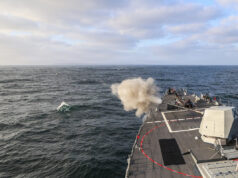
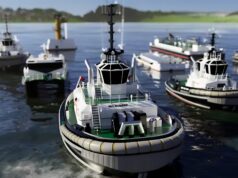
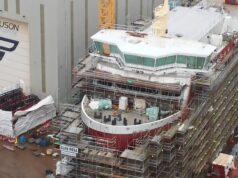
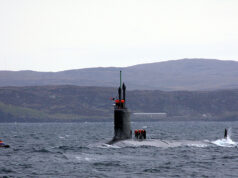
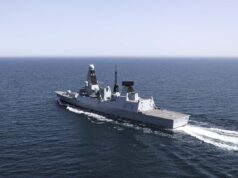


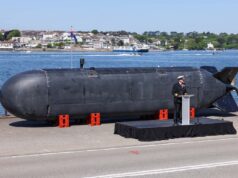
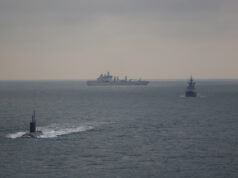
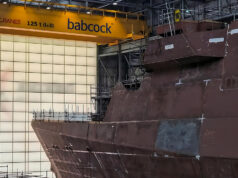

Interesting to see that capital investment in yards is / might be a key part of the assessment.
If we want to improve productivity we need to invest in modern methods and manufacturing equipment. Hopefully increased productivity will make the yards more competitive globally and offer opportunities for improved pay as well. The latter, in current cost of living crisis, is not unimportant.
Cheers CR
One of the reasons I hope Ben Wallace is able to stay as DS. I watched the Defence Select Committee video and he was very clear that investment in yards is a key driver.
He was asked a number of times whether the ships will be solely built in the UK. He refused to give that guarantee (which is correct IMO) as he wants whoever wins to invest here, whether or not that means some work is done overseas.
Agreed.
If Wallace and the MoD are involved in re-specifying the contract for the FSS, you can bet your bottom dollar that it will turn into another Ajax cock-up.
What are you thinking of? Another “we will build the hulls out of cheap Chinese steel that does not meet the weldability spec and then build a factory in Merthyr to assemble them”
This is swiftly turning into another MoD cock-up. Can’t you tell?
Who else is going to write the specification for military equipment? John from the local bloody fish and chip shop because he once watch a video on napoleonic shipbuilding? Writing the specs for military equipment is one of the majors jobs done by the MoD.
Not clear from your post if you’ve viewed the video, David. If not, then I’d recommend.
Rgs
Apology for this heads up , Daniele, but could not access the ‘3rd US sub’ post, which was evidently where our F35 discussion took place according to my email, for any further chat. No worries.
Rgs
Morning Gavin.
Yes, for some reason the article has gone.
Cheers.
Interesting – political as like.
Something else of interest and apropos of no other discussion other than politics, is the recent supposed accord between Russia and Ukraine over grain shipments. Russia could well conjure sanctions relief towards the end game, but I ponder other influences:
Ukraine states Africa is being held hostage to Russia’s export constriction
China is Africa’s biggest trading partner
China supports Russia over Ukraine (maybe even militarily, but whatever)
China tells Russia to back off on the grain issue
Who knows, but could be envisaged.
Have another very nice sunny day.
Like Daniele I agree. Inward investment is still investment and can help move the UK in the direction of high productivity high wages, which is the only way to get out of the cost of living crisis.
May be inward investment might help to stimulate home grown investment as well. Would be nice to create a virtuous circle for a change.
Cheers CR
I am making $92 an hour working from home. i was greatly surprised at the same time as my neighbour advised me she changed into averaging $ninety five however I see the way it works now. I experience mass freedom now that I’m my non-public boss.
That is what I do.. http://Www.Profit97.Com
Ship building, along with other industries pertinent to the wellbeing and security of the country shouldn’t need to be buoyed up by civilian companies (by all means collaborate with them) they should be funded by the Government , we see this in other countries such as China, Korea, India, not only does this link in with national defence and security, but it ensures that a steady stream of engineers are trained , engineers the country needs to keep things afloat and which of late we have seen a demise of .
Completely agree, key national infrastructure should not be left to market forces that can easily destroy national infrastructure as the market does not care about national interest.
I’d say governments have done more to wreck countries than companies, Argentina, Zimbabwe and Sri Lanka all wrecked by there governments policies not rogue companies. A large part of the UKs infrastructure was built by industrialists to support their economical activities.
What Ben is saying to companies is the opposite to your comment and what’s been happening, the government invested in TOBA got nothing now they’re saying you want the order you invest build the infrastructure and skills.
The first part of the article below is a better insight.
https://www.naval-technology.com/analysis/are-uk-shipyards-prepared-to-invest-for-the-future/
Hi expat, you have to understand I’m specifically talking about market forces here in the neoliberal sense of the world not industry or companies. It’s the governments job to protect industries and companies from market forces that may be destructive to that nations infrastructure, I’m taking of ultra cheap production in the Far East driven by almost slave labour out competing western companies. My comment was in support of Farouk in his comment that strategic infrastructure must be supported by government. You cannot just leave it to the markets ( just look at energy dependence on cheap Russian oil in Europe…that is a classic example of the market creating a significant infrastructure and strategic problem for western nations.
Read a funny comment on energy earlier today. It said when energy companies cut production they’re accused of market rigging to force up prices but when activist take them to court to force production cuts they hailed as saviors.
Look at the north Sea Shell pulled out of a major development not because there was cheaper resource elsewhere but because it was uncomfortable with public image which is generated by people with a binary view of a problem.
Germany was also stupid enough to start closing its nuke plants because of the Japanese disaster, even though nuclear power has proved to be safer than fossil fuel alternatives which we know threatens billions long term.
It’s seems the market has very little to contribute in these current times. We’re becoming the masters of our own demise.
As for the shipbuilding infrastructure this is exactly what Ben is saying if you dont come with a plan to invest in the infrastructure your not getting a contract.if you read the naval technology article he quotes examples where yards are investing.
I’m not worried about mass production in far East if we had to repatriate the manufacturing of garden fork handles that’s hardly going to prove challenging. However bigger threat is technology theft which is costing UK billions year on year.
Excellent – totally agree. We need to accept we’re not going to be mass manufacturers of widgets anymore. Our wealth and sovereignty comes from our ability to innovate and manufacture new high tech systems and create products and services a widget factory just can’t. Let us have the capacity to make strategic widgets – just in case but not fret about mass production.
I frame it this way. In Poland you still find middle aged ladies cleaning toilets and taking payment for use of the facilities. Yes it gives them a job but I say – is that all she’s worth? Surely that human being has more to contribute than that. Get her a course on basic administration and immediately she’s doing something a little better, a little more profitable and a little more taxable! A small investment could improve her life and the nations…her toilet mastery can be replaced by a service contract and a vending machine.
Same approach for all factory and service jobs.
The energy problems come from the Government. The market really is just a weighing scales. It looks at the supply, demand and regulatory environment and works out the most cost effective means of doing something over the decades.
If you want energy diversity, storage, resilience etc. then these need to be factored into the analysis but its not BP or RR’s responsibilities to do that. Their fundamental regulatory responsibility is shareholder value, that’s it.
We could have had a number of large, new nuclear plants coming on-line now and Rolls Royce’s modular reactor could be moving into assembly if the government had, had a strategic vision for energy but they didn’t. In 1997 the engineering institutions were warning we needed to start planning for these, then 13 years later, New Labour was replaced by the coalition and the first steps towards doing this were realised. This was a clear political failure.
As for the government needing to protect business more, I’d agree with that. The British market is risk averse and hyper competitive resulting in lower profits, low internal investment and low productivity growth. This leaves them vulnerable to foreign takeover and eventually being outcompeted by richer, more productive foreign firms. If we want more inward investment, profits need to be higher and that comes down to supply, demand and regulatory environment – back to politics.
I’d say should not be left *just* to market forces.
Yes agree it’s a more supportive process of making sure your key infrastructure and companies do not succumb to market forces driven by globalisation and Neo liberal dogma…it’s what we have done for a couple of decades and now China has a massive mercantile advantage over the west that’s going to a a long term strategy problem.
Farouk total up the number of orders over say last 20 years to UK yards, 1 order of 0.5 billion has gone overseas. We’ve seen 10s of billions go to UK yards in the from of orders, TOBA etc and to my knowledge only Babcock have made an investment. The real world reality is commercial companies that have to compete are just far more productive and efficient than ones that relay on government orders(handouts).
Why do so many think UK engineering and manufacturing is in demise. We manufacture more per person by value than China, what we do differently is manufacture less of the everyday mundane low value stuff. A great example was the A380 when fitted with RR engines 50% of the aircraft was made in the UK!!!
We’re not far behind France a country often haled as protective over its manufacturing industries. In fact given France has a higher population we may even be ahead of France on a per person basis.
Well being of defence will come from a healthy competitive economy that brings money into the UK.
Your wrong we need to stop manufacturing high end aviation products and get rid of all that services crap so we can all go back to proper jobs knocking big bits of metal together on rivers in the north of Britain. Remember the days when cities like Glasgow, Newcastle and Liverpool lead the world in child poverty and work place deaths. When the streets just oozed poverty and good working class people knew their place. Funny how they stopped making ships in London before even the 20th century.
Every time one of the economics geniuses on here comes out with the great idea how we should rebuild ship building in the UK, they should be forced to state, where a country that’s running at full employment and has its worst inflation in decades because of lack of staff finds tens of thousands of skilled workers.
What high end industries should we scale back on. It’s worth noting right now yards in Korea and China are being shutdown because they can’t compete on price or technology.
Yeah the gold old days 😀
better yet bring back riveting then we can have kids in “proper jobs” as well no need for any of these schools.
I’m pretty comfortable in my office job and I think most people in the UK are. That’s why we don’t build a lot of ships now a days. The places that took the yards from us are now closing them down as well as the move to even cheaper and poorer countries.
The way forward is modernisation being a robot operator or programmer ooking after kit that does the job of 5 welders is the way to improve the workers lives and pay them more. .
I would agree that’s why modernisation is needed. There’s new automated welding robots that can take on a higher % of the welding. It’s better to be an operator or maintenance technician of a peice of automated kit that increases productivity. You earn more and the work is easier.
Huntington in the US has acquired a system that can deal with the more bespoke nature of shipbuilding see the youtube vid below. Granted there will be some manual welding.
https://youtu.be/lKbLZ7OSzkE
Here’s an idea Why don’t we heavily invest in our own shipyards ourselves?
Why, which is better, your take payer money or a foreign companies profit going into our yards. UK shipbuilding has had 10s of billions of UK money poured into it through government purchases yet none of the money was reinvested. Only 1 order of 0.5 billions going overseas yet you’d think that 90% of orders go overseas the way the industry complains.
Really liked what Wallace had to say at the committee hearing. UK yards have to invest ,train and maintain a skilled UK workforce and he set out a plan for 2 decades of ship building, so there’s a plan to smooth out the feast and famine of building ships. has to be some give and take , we should be good enough to get export orders and also therefore import. The example was nissan and Toyota coming to UK in the 80′ s saving car building industry. Spot on.
This has more on the topic.
https://www.naval-technology.com/analysis/are-uk-shipyards-prepared-to-invest-for-the-future/
Any good books on military procurement?
For example, if a British bid said, “I would like your contract, but I am not going to invest in the capital of the yard”
Any similarity with a BAES living or dead is purely coincidental.
How can a British bid make a ship to a certain spec at the same price and time scale as an outside yard but not need to buy the tech the outside yard would have to use to do the same job?
Is the tech not needed or am I missing something here.
Afternoon, MS. Cannot remotely claim to answer this techie query knowledgeably, I’m afraid. I look at issues more from the political / infrastructure / onshoring / etc angles these days. Had some missile performance data back in my youth – lets call it 50 years ago! but what I ‘contribute 😕’ nowadays techwise is no better than the rest i.e. indulgent, for the most part.
That said, the UK still majors on the true added value of platforms with respect to sensors and weapons skills. We must build the entirety of of platform wherever possible from now on in, though, as security demands it.
You’ve seen the defence Committee video on UTube, I take it? Cannot improve on the candid answers (mostly!) revealed therein.
Hi Gavin, and therein lies the crux of the matter I believe. We have not designed or built anything like a FSSS since Ft Vic in the early 90’s. Indeed we as a nation haven’t built any support ships since the early mid 00′,s, when we built the Waves/Bays. My guess is that after such a long gap in design/construction of said capabilities, we are probably lacking in the skills required to get these projects up and running (bit like when we need US help with the Astutes). I imagine we will see far more ‘foreign’ involvement than what is being touted by the MOD.
Of course, could be totally wide of the mark, but then again……
Interesting to hear from you, D32 i.e. your background in subsea. Well remember, as an RN Target, being totally mystified by what you lot got up to, yet appreciating the trump card the specialism represented. Biggest heffalump nowadays is our small number of boats, a deficit out of proportion to their worth.
Anyway back to the present. I have been impressed (caveat, relatively) by Wallace who talks the talk reference UK defence future (always beyond a four year political cycle, generally eight years minimum) and has walked the walk to date, even to declining the PM mandate (caveat, hopefully). Foreign involvement fine, if leads to direct investment here, as you know. Was going to quote the car industry / Japanese, but remembered that was highlighted in the Defence Committee meeting anyway.
Cheers
Hi Gavin, just occasionally I like to stick my head above the waves and throw in the odd grenade to ignite become debate.
I like Wallace too, think he has/is doing a pretty good job, certainly both him and PM have given defence some much needed direction, given there is still a long road ahead.
Having a 20+ year plan is all well and good, as long as we are starting from a position of strength WRT skilled workforce. Unfortunately I’m not convinced we are at that stage just yet and the road ahead might be a bit bumpy before we get there.
That’s my unqualified thoughts on it.
I don’t know the answer either. Is a dry stores ammo ship even built by many countries now. Can’t imagine much demand for them. Personally I would give it to team U.K. I’m sure babcock and BAE can manage it between them. They have current shipyards with staff.
Why not all of it ,the government have only recently woke up to the fact that we hardly have any building yard’s left,and if the Scottish go independent those warship orders will not come south because there’s nowhere to build them.
if its just some parts then that’s fine, as long as its not whole ships.
I think the Navantia / BMT / H&W bid involves investing in Belfast, but the first hull is built in Spain while that investment takes place. A lot of UK content however as the design is British (BMT) and H&W is given the capability to build the second two hulls and MRSS afterwards (also a BMT design).